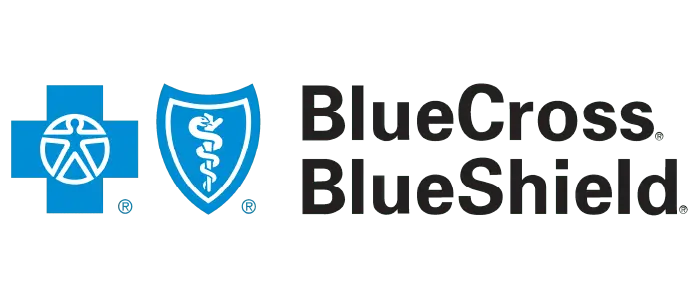
Barbiturates are a class of drugs primarily used to treat various medical conditions like insomnia, anxiety, and seizure disorders due to their calming effects. However, in recent years, barbiturate addiction has become prevalent among teenagers in the United States.
Understanding and addressing barbiturate addiction in teens is crucial. We will discuss the symptoms of addiction, potential causes and risk factors, typical side effects, and available treatment options.
Barbiturate addiction is a pressing issue among teens, requiring comprehensive medical treatment and strong parental support. Here is what every parent must know:
Identifying the symptoms of barbiturate abuse in teenagers is crucial for parents concerned about their child’s well-being. Barbiturates are powerful central nervous system (CNS) depressants, and their misuse can lead to various physical, behavioral, and mental signs.
Physical symptoms of barbiturate abuse can manifest in various ways, such as:
Changes in your teenager’s behavior can also indicate barbiturate abuse. Watch out for:
In addition to physical and behavioral changes, pay attention to your teen’s mental state:
As parents, understanding why some young people may be drawn to these substances can help you take preventive measures and support your child if they are struggling with barbiturate addiction.
Genetics plays a role in a teen’s susceptibility to addiction. If there is a family history of substance abuse, your child may be at a higher risk of developing barbiturate addiction. It’s essential to be aware of your family’s history of addiction and discuss it openly with your child. This knowledge can help you and your teen make informed decisions about their substance use.
Barbiturates are central nervous system (CNS) depressants that can be highly addictive. Teens may experiment with these drugs out of curiosity, not realizing their addictive potential. The euphoria and relaxation initially experienced can lead to cravings and physical dependence over time. It’s crucial to educate your teen about the risks associated with barbiturate use and the potential for addiction.
Teens often face a variety of emotional and psychological challenges. Some may turn to barbiturates as a form of self-medication to cope with anxiety, depression, or stress. If your teenager is struggling with their mental health, seek professional help and explore healthy coping mechanisms together. Encourage open communication to understand your teen’s emotional state.
Peer pressure can be a significant factor in a teen’s decision to use barbiturates. Adolescents often want to fit in with their peers and may feel pressured to try drugs to be part of a group. Teach your teen about the importance of making their own choices and saying no when they feel uncomfortable. Help them build strong self-esteem and self-confidence.
Teens face various sources of stress, including academic pressures, family issues, and social challenges. Some may turn to barbiturates to temporarily escape or numb themselves from these stressors. Encourage stress-reduction techniques such as exercise, mindfulness, and spending quality time together to help your teen manage stress in healthier ways.
The availability of barbiturates can significantly influence a teen’s access to these drugs. While these substances are less common today than in the past, they can still be found in medicine cabinets nationwide. Educate yourself about the signs of barbiturate use and monitor your teen’s activities and social circles. Be vigilant in ensuring that your home is a drug-free environment.
In some cases, a lack of parental supervision can contribute to a teen’s involvement with barbiturates. It’s crucial to maintain an open and communicative relationship with your child. Be aware of their friends and activities, set clear boundaries, and provide guidance on responsible decision-making. Your involvement as a parent is essential in preventing drug and alcohol abuse.
As parents, it’s crucial to recognize the adverse effects of barbiturates on your teen’s life. By understanding these effects, you can take action to help your child overcome their addiction and lead a healthier, drug-free life. Here are the most common side effects of barbiturates on teen’s daily life:
If your teen is struggling with barbiturate addiction, it’s crucial to understand the treatment options available. Treatment can help your child overcome addiction and lead a healthier life. Here are some essential treatment approaches for teens dealing with barbiturate addiction.
Residential or inpatient rehab is a comprehensive option for teens with severe barbiturate addiction. In this setting, your teen will live at a rehab center for an extended period, usually 30 to 90 days or more. They receive 24/7 medical care, counseling, and therapy in a structured, drug-free environment. This immersive approach helps teens break free from addiction while building essential life skills.
Individual and group therapy sessions are fundamental to barbiturate addiction treatment for teens. Therapists and counselors work with your teen to address the root causes of addiction, develop coping skills, and build resilience. Cognitive-behavioral therapy (CBT) is the most commonly used approach that has proven effective in treating adolescent addiction.
Support groups provide a valuable source of peer support and encouragement for both teens and their families. Teen individuals can connect with others who have faced similar challenges and share their experiences. Support groups, such as Narcotics Anonymous (NA), offer a safe space for teens to discuss their addiction and recovery journey.
This program is designed for teens—every part of it. With a maximum of just 22 teens in our care at any time, our team has the space to build meaningful, personal relationships with each adolescent and stay closely connected to every family.

Medical Director
Over 40 years in addiction medicine, with a focus on adolescent care for nearly three decades

Clinical Director
Leads trauma-informed therapy with a personalized approach

Program Director
Brings 20 years of youth-focused experience in family systems and crisis stabilization

Professional Chef
Prepares nourishing meals that create community and comfort, with over 25 years of experience

Creative Arts Therapist
Helps teens process emotions through music, art, and expression
Families come from all over the country for one reason: the care here works. Your teen isn’t just treated. They’re seen, supported, and given the tools to grow.
Barbiturates are a class of drugs with three common uses: treating seizures, helping with sleep problems, and inducing anesthesia during surgery. These medicines work by calming the brain and nerves. However, they can be harmful if not used carefully. So, always follow your doctor’s advice when taking them.
Barbiturates are rarely used for anxiety today. Doctors prefer newer drugs like benzodiazepines or antidepressants. Barbiturates have risks of addiction and overdose, making them less suitable for anxiety disorder treatment. They are, however, still commonly used for epilepsy. If you use barbiturates for epilepsy, ensure your medication is stored somewhere your children cannot access.
Barbiturates act as CNS depressants. Different types of barbiturates were once used as sedatives, anesthetics, and to treat epilepsy. However, today, these medications are less common for medical purposes due to safety concerns like addiction and overdose risk. Doctors now prefer safer alternatives like benzos for anxiety and sleep issues.



Many More
It’s time to make a change for your teen. Get answers today.
100% Confidential
You’ve tried what you can. If nothing else has helped, this may be the step that finally moves things forward.
You don’t have to figure it out alone. Reach out today to talk with someone who understands. We’ll help you decide if Never Alone is the right fit, and walk you through what happens next.